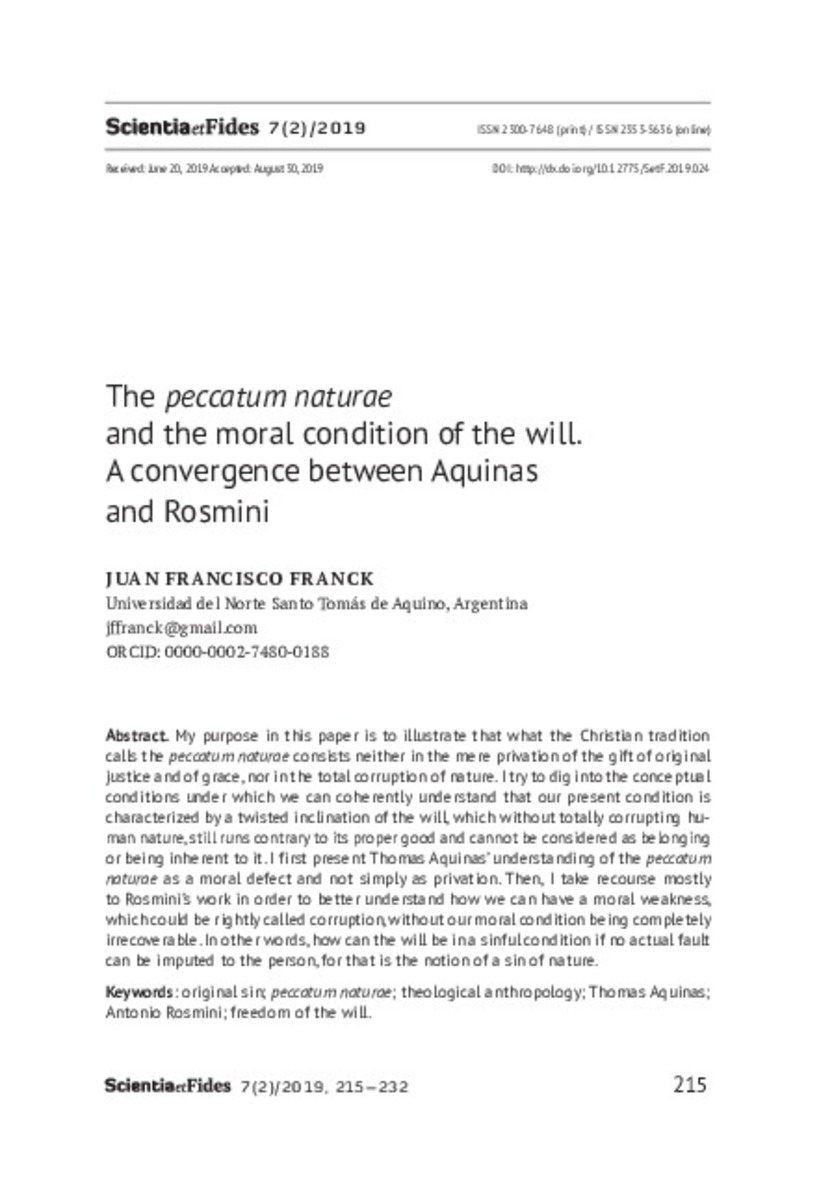The peccatum naturae and the moral condition of the will. A convergence between Aquinas and Rosmini
Palabras clave :
original sin
peccatum naturae
theological anthropology
Thomas Aquinas
Antonio Rosmini
freedom of the will
Fecha de publicación :
2019
Editorial :
Uniwersytet Mikołaja Kopernika
Cita:
Franck, J.F. (Juan Francisco). "The peccatum naturae and the moral condition of the will. A convergence between Aquinas and Rosmini". Scientia et Fides. 7 (2), 2019, 215 - 232
Aparece en las colecciones:
Estadísticas e impacto
0 citas en

0 citas en

Los ítems de Dadun están protegidos por copyright, con todos los derechos reservados, a menos que se indique lo contrario.







